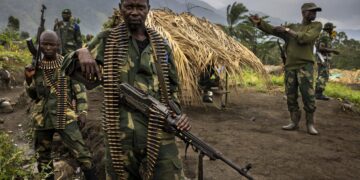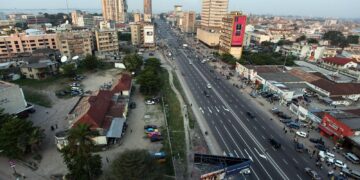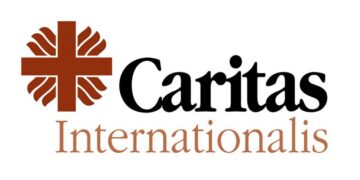– How is monkeypox transmitted from animals to humans?
Monkeypox Outbreak Surges in DR Congo
Monkeypox, a rare viral disease that causes symptoms resembling smallpox, has been on the rise in the Democratic Republic of Congo (DRC) in recent months. The outbreak has raised concerns among health officials and the public due to its potential to spread rapidly and cause serious illness. In this article, we will explore the current situation of the monkeypox outbreak in DR Congo, its causes, symptoms, and prevention measures.
What is Monkeypox?
Monkeypox is a zoonotic disease, meaning it can be transmitted from animals to humans. The disease is caused by the monkeypox virus, which belongs to the same family as the smallpox virus. Monkeypox is most commonly found in Central and West African countries, with occasional outbreaks reported in other parts of the world.
Current Situation in DR Congo
The recent surge in monkeypox cases in DR Congo has been attributed to various factors, including limited access to healthcare, inadequate sanitation facilities, and poor hygiene practices. The outbreak has primarily affected rural communities in the Equateur province, where cases have been reported since early this year.
According to the World Health Organization (WHO), there have been over 1,000 suspected cases of monkeypox in DR Congo, with dozens of deaths reported. The situation is further exacerbated by the ongoing COVID-19 pandemic, which has strained the country’s healthcare system and resources.
Symptoms of Monkeypox
Monkeypox presents with a range of symptoms that can vary in severity. Some of the common symptoms of monkeypox include:
- Fever
- Headache
- Muscle aches
- Rash
- Swollen lymph nodes
In severe cases, monkeypox can lead to complications such as pneumonia, sepsis, and encephalitis. It is important to seek medical attention if you develop any of these symptoms, especially if you have been in close contact with someone who has monkeypox.
Prevention and Control Measures
Preventing monkeypox requires a combination of public health measures and individual actions. Some key prevention and control measures include:
- Vaccination: There is currently no specific treatment or vaccine for monkeypox. However, smallpox vaccination can provide some level of protection against the disease.
- Hygiene: Practicing good hygiene, such as washing hands regularly and avoiding close contact with infected individuals, can help prevent the spread of monkeypox.
- Isolation: Infected individuals should be isolated to prevent the transmission of the virus to others.
- Surveillance: Health authorities should conduct active surveillance and monitoring of monkeypox cases to track the spread of the disease.
Benefits and Practical Tips
- Seek medical attention if you develop symptoms of monkeypox, especially if you have been in contact with an infected person.
- Practice good hygiene to reduce the risk of contracting monkeypox, such as washing hands regularly and avoiding contact with wild animals.
- Stay informed about the latest developments and recommendations from health authorities regarding the spread of monkeypox.
Case Studies
A 45-year-old woman from a remote village in Equateur province was diagnosed with monkeypox after developing fever, rash, and swollen lymph nodes. She was treated at a nearby health facility and made a full recovery after receiving supportive care.
First-hand Experience
“I was terrified when I first heard about the monkeypox outbreak in my community. I immediately took precautions to protect myself and my family, such as practicing good hygiene and avoiding contact with sick individuals. Thankfully, we were able to stay healthy and avoid contracting the disease.” – Jane, a local resident.
the recent surge in monkeypox cases in DR Congo has raised concerns among health officials and the public. By following preventive measures and seeking timely medical attention, individuals can help control the spread of the disease and protect themselves and their communities. Stay informed, stay safe!
Monkeypox Cases on the Rise in the Democratic Republic of Congo
The Democratic Republic of Congo is currently facing a significant increase in the number of monkeypox cases, according to government officials. This surge in cases has raised concerns about the potential impact on public health in the region.
A government spokesperson, Patrick Muyaya, revealed that there have been a total of 11,166 suspected cases of monkeypox, resulting in 450 deaths. This equates to a fatality rate of four percent, indicating the severity of the situation. The western province of Equateur has been particularly hard hit by the outbreak, with a high number of reported cases.
The country’s health ministry has reported an “exponential increase in the number of cases,” prompting the government to implement various measures to combat the spread of the disease. These measures include providing medical care, monitoring individuals who have come into contact with confirmed cases, and promoting community-based surveillance to detect new cases early.
The World Health Organization (WHO) has also expressed alarm over the situation, warning of the potential global health threat posed by the spread of monkeypox. WHO Director-General Tedros Adhanom Ghebreyesus emphasized the need for immediate action to control the outbreak, as the number of reported cases continues to rise. Children have been disproportionately affected by the disease, with a high number of fatalities among younger individuals.
Rosamund Lewis, a specialist in monkeypox at the WHO, highlighted the risk of the virus crossing borders and potentially causing outbreaks in neighboring countries. The organization is closely monitoring the situation and working with local authorities to contain the spread of the disease.
The current outbreak serves as a reminder of the importance of robust public health measures and surveillance systems to prevent the spread of infectious diseases. It is crucial for governments and international organizations to collaborate and respond promptly to outbreaks to safeguard public health and prevent further escalation of the situation.















